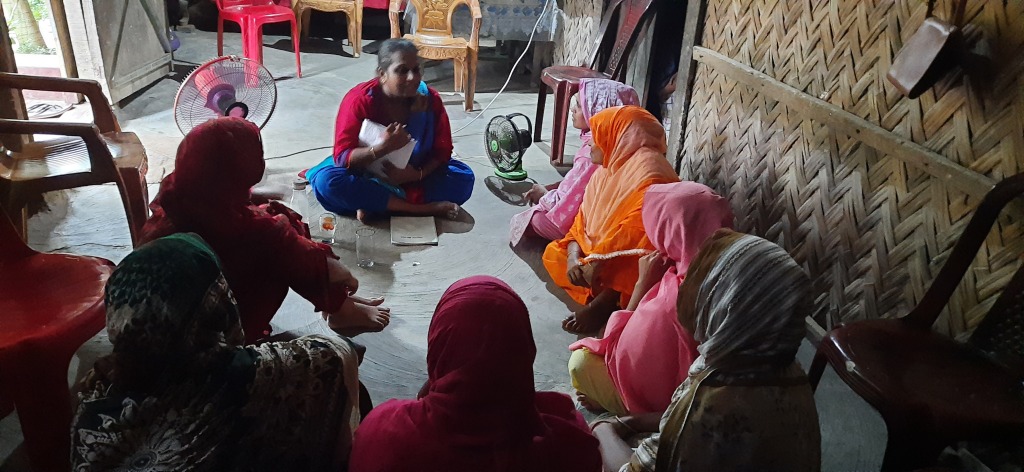
Women-owned businesses in Bangladesh market systems study
Situation
The study explored the status and challenges faced by women-owned businesses throughout Bangladesh, including in refugee camps. Women entrepreneurs across diverse backgrounds and circumstances were targeted, categorized by various characteristics such as marital status (married/unmarried), employment status (currently working, previously working, or not working), exposure to business-related training, and overall vulnerability.
The research team also conducted interviews with husbands, fathers, and other family members of women entrepreneurs to gain comparative insights and to better understand societal norms affecting women’s entrepreneurship. The methodology, data collection tools, fieldwork, analysis, and reporting were collaboratively designed and implemented by DevLearn Ltd, with active input and participation from The Asia Foundation throughout the study. Additionally, TAF supported the identification of key market actors and facilitated relevant interviews.
Assignment
The core objective of this study was to address the knowledge gap concerning the specific constraints that hinder the growth of women-led micro and small businesses. Despite policy reforms aimed at supporting women entrepreneurs, these businesses still face considerable barriers, particularly in accessing essential start-up and growth capital. The study aimed to identify these constraints and provide actionable recommendations to enhance women’s participation and business growth within the local economy.
Approach
The study adopted a Market Systems Development (MSD) approach, analyzing the entire entrepreneurial ecosystem, including external regulations, policies, and market functions affecting women entrepreneurs. This comprehensive approach enabled the identification of both internal and external factors contributing to market dysfunction and provided insights into the systemic barriers that prevent women entrepreneurs from fully integrating into the market. The MSD approach facilitated identifying sustainable and scalable opportunities to enhance women’s inclusion in local market systems.
Results
The research focused explicitly on non-farm women-owned cottage, micro, and small enterprises (CMSEs) operating in three main sectors:
- Trade
- Services
- Manufacturing
The study primarily examined sectors with significant current female engagement. However, it also highlighted potential opportunities in sectors with lower current engagement but high growth potential, notably the IT freelancing market. Given the identified potential, the study recommends that The Asia Foundation conducts an in-depth analysis of the freelance IT market to pinpoint critical constraints and explore potential intervention opportunities specifically tailored for women entrepreneurs.
Intervention recommendations were categorized based on practical implementation timelines:
- Short-term (1-2 years) interventions aimed at quick wins and immediate support measures.
- Medium-term (2-3 years) interventions for systematic enhancements and deeper market integration.
- Long-term (3-5 years) interventions targeting structural and transformative changes within the market ecosystem.
The study underscored the interconnected nature of the barriers experienced by women-led CMSEs. Consequently, it emphasized the importance of maintaining a holistic perspective of the entire entrepreneurial ecosystem during analysis and intervention design. The Asia Foundation is advised to develop integrated, multi-dimensional interventions, working closely with both public and private sector actors. Such a coordinated approach will promote innovative, sustainable, and scalable solutions, significantly enhancing the growth and resilience of women-led CMSEs across Bangladesh.
This project was commissioned by DevLearn Ltd for client, The Asia Foundation and performed by Sajia, a member of the Proportion Global community. If you’ve enjoyed reading this case and want to dive deeper, we’d love to hear from you and we will connect you with relevant designers like Sajia, who worked on this project Contact Us


Responses